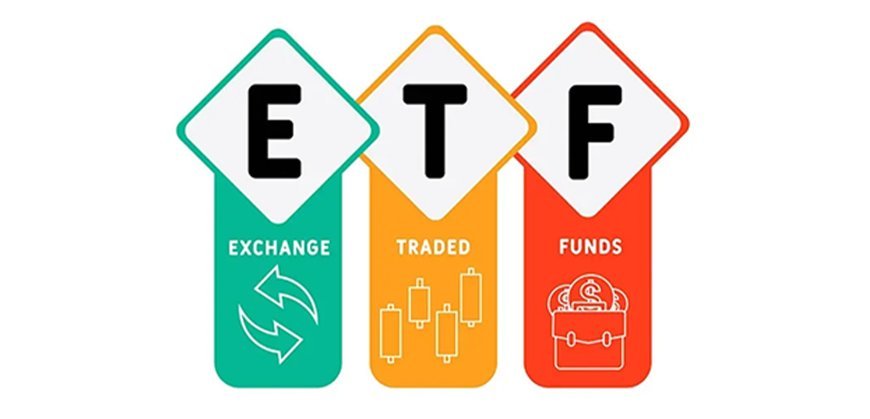10 Best Investment Options for Beginners in 2025
Where should beginners invest in 2025? Discover low-risk options like ETFs, REITs, and CDs for stable returns and smart growth!

Investing can feel overwhelming, especially when you’re just starting. With countless options available, how do you know which one is right for you? Should you go for high-risk, high-reward stocks, or play it safe with fixed deposits and government-backed schemes? What about gold, real estate, or ETFs?
The financial landscape in 2025 is evolving rapidly, with new investment trends emerging alongside traditional options. Interest rates, stock market fluctuations, and economic policies all play a role in determining where your money will grow best.
This guide simplifies the choices, breaking down the top investment options for beginners, from low-risk savings schemes to high-growth mutual funds and ETFs. Whether you're looking for stable returns, tax benefits, or long-term wealth creation, this list will help you make an informed decision. Let’s explore the best ways to invest wisely in 2025!
Public Provident Fund (PPF)
The Public Provident Fund is a government-backed savings scheme in India, offering a fixed interest rate that is revised quarterly. As of the latest update, the PPF interest rate stands at 7.1% per annum. It has a 15-year maturity period and provides tax benefits under Section 80C of the Income Tax Act. The returns are also tax-free, making it an attractive option for risk-averse investors.
Fixed Deposits (FDs)
Fixed Deposits are offered by banks and financial institutions, providing a predetermined interest rate over a specific tenure. Interest rates vary across institutions and are subject to change based on economic conditions.

For instance, as of now, leading banks offer FD rates ranging from 5% to 6.5% for tenures between 1 to 5 years. FDs are considered low-risk investments and offer capital protection.
Mutual Funds
Mutual funds pool money from multiple investors to invest in diversified portfolios managed by professionals. They cater to various risk profiles:
- Equity Mutual Funds: Invest primarily in stocks and are suitable for investors with a higher risk tolerance seeking long-term capital appreciation.
- Debt Mutual Funds: Invest in fixed-income securities like government bonds and corporate debt, ideal for those with a moderate risk appetite aiming for stable returns.
- Balanced or Hybrid Funds: Combine equity and debt investments to balance risk and return, suitable for investors seeking moderate growth with some level of safety.
Systematic Investment Plans (SIPs) allow investors to invest regularly with amounts as low as Rs 500, promoting disciplined savings and averaging out market volatility.
National Pension System (NPS)
The National Pension System is a voluntary retirement savings scheme that invests in a mix of equities, corporate bonds, and government securities. It offers tax benefits under Section 80C and an additional deduction under Section 80CCD(1B) up to Rs 50,000. NPS is suitable for long-term retirement planning, with partial withdrawals allowed under specific conditions.
Unit Linked Insurance Plans (ULIPs)
ULIPs provide life insurance coverage along with investment options in equity, debt, or balanced funds. They offer flexibility to switch between funds based on market conditions and potential tax benefits under Section 80C. However, it's essential to be mindful of associated charges and the lock-in period of 5 years.
Bonds
Investing in government or corporate bonds provides regular interest income with relatively lower risk. Government bonds are considered safer, while corporate bonds may offer higher yields with a corresponding increase in risk. Bonds are suitable for those seeking stable returns and capital preservation.
Real Estate
Investing in property can yield substantial returns over time through capital appreciation and rental income. However, it requires significant capital and involves considerations like location, market conditions, and liquidity. Real estate investments also come with associated costs such as maintenance, property taxes, and transaction fees.
Gold
Traditionally a hedge against inflation, investing in gold can be done through physical purchase, Gold ETFs, or Sovereign Gold Bonds. Gold prices have been rising, which may impact demand. For instance, in India, gold demand is expected to cool in 2025 as prices soar.
Exchange-Traded Funds (ETFs)
ETFs are investment funds that trade on stock exchanges, similar to stocks. They offer diversification by holding a basket of assets, such as stocks, bonds, or commodities.

ETFs often have lower fees compared to mutual funds and provide flexibility in trading. They are suitable for beginners due to their simplicity and broad market exposure.
High-Yield Savings Accounts
While not traditional investment vehicles, high-yield savings accounts offer a secure place to store funds with interest rates higher than standard savings accounts. They are ideal for short-term savings goals or as a component of an emergency fund, providing liquidity and safety. This option is particularly suitable for beginners seeking low-risk avenues to grow their savings.
Key Considerations for Beginners:
- Risk Assessment: Understand your risk tolerance before choosing an investment.
- Diversification: Spread investments across different asset classes to mitigate risk.
- Investment Horizon: Align your investments with your financial goals and timelines.
- Stay Informed: Keep abreast of market trends and regulatory changes.
Starting with low to moderate-risk investments can help build confidence as you become more familiar with the investment landscape.
FAQs
What are the best low-risk investment options for beginners in 2025?
For low-risk investments in 2025, high-yield savings accounts offer better interest with easy access, while CDs provide fixed returns for a locked-in period.
How can I start investing with a small amount of money?
Start small with ETFs, mutual funds, or fractional shares, which offer diversification and low entry costs.
Are Real Estate Investment Trusts (REITs) a good option for beginners?
Yes, REITs offer beginners an easy way to invest in real estate with low capital and earn dividends without owning property.
How should I approach investing in the stock market as a beginner?
Start with a clear plan, long-term focus, and diversified funds like ETFs or mutual funds. Stay informed and avoid impulsive decisions.

 Admin
Admin